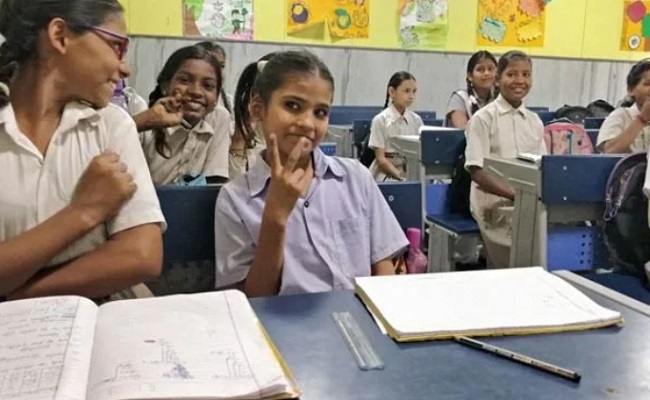
WASHINGTON: The Trump administration may deny green cards to immigrants who have availed or may avail government benefits including food and cash assistance under new rules which could negatively affect hundreds of thousands of Indians living in the US.
The proposed rule signed by the Homeland Security Secretary on September 21 and posted on the website of the Department of Homeland Security (DHS) was slammed by the Silicon Valley-based tech industry and political leaders.
According to the rule, foreign immigrants who "seek adjustment of status or a visa, or who are applicants for admission, must establish that they are not likely at any time to become a public charge" unless determined by Congress. Public charge means receiving government benefits.
The latest move to crack down on immigration comes days after the Trump administration told a federal court that its decision to revoke work permits to H-4 visa users, a significant majority of whom are Indian-Americans, is expected within the next three months, a move which will have a major impact on Indian women as they are the major beneficiary of the Obama-era rule.
The DHS proposes to require all immigrants seeking an extension of stay or change of status to demonstrate that they have not received, are not currently receiving, nor are likely to receive public benefits as defined in the proposed rule.
"Under long-standing federal law, those seeking to immigrate to the United States must show they can support themselves financially," said Homeland Security Secretary Kirstjen Nielsen.
"The department takes seriously its responsibility to be transparent in its rule-making and is welcoming public comment on the proposed rule.
"This proposed rule will implement a law passed by Congress intended to promote immigrant self-sufficiency and protect finite resources by ensuring that they are not likely to become burdens on American taxpayers," she said.
Expressing its opposition to the proposed rule, FWD.US, which represents companies like Facebook, Microsoft, Dropbox, Yahoo and Google, said it "is a backdoor" administrative end-run to substantially reduce legal immigration that, if implemented, will hurt the entire country.
"This policy will cost the United States in the long run by limiting the contributions of hardworking immigrants who could become legal residents, and no one is better off because of it," FWD.us president Todd Schulte said.
It would create a subjective criteria and overly-bureaucratic process when making a public charge determination. It is "another underhanded attempt to force cuts to legal immigration, ultimately hurting our communities and country," Mr Schulte said.
The proposed public charge rule is nothing less than a public disgrace - and a direct attack on the health, housing, and economic security of American children, said Los Angeles Mayor Eric Garcetti.
"Our federal government should not be in the business of penalising low-income parents, punishing kids, or targeting immigrants who work hard, strengthen our economy, pay taxes, and play by the rules," Mr Garcetti said.
The legislation could have a major impact on Indians, mostly from the tech industry working in the US.
As of April, there were 632,219 Indian immigrants and their spouses and minor children waiting for green cards.
According to US Citizenship and Immigration Services, in all 306,400 primary Indian applicants are waiting for their green cards. Clubbed with their spouses and children numbering 325,819; as many as 632,219 Indians in all are waiting for their green cards.
People have 60 day-time to comment on the proposed rule, which will mainly impact legal immigrants as illegal immigrants are not eligible for any government benefits.
There is possibility of changes in the proposed rule before it is being promulgated.
The DHS said the proposed regulation defines a public charge to be a person who receives certain public benefits above certain defined threshold amounts or for longer than certain periods of time.
In making this determination, the DHS is proposing to consider current and past receipt of designated public benefits above certain thresholds as a heavily weighed negative factor.
The rule would also make non-immigrants who receive or are likely to receive designated public benefits above the designated threshold generally ineligible for change of status and extension of stay.
The public benefits proposed to be designated in this rule are federal, state, local, or tribal cash assistance for income maintenance, temporary assistance for needy families, supplemental security income, medicaid (with limited exceptions for Medicaid benefits paid for an "emergency medical condition," and for certain disability services related to education), medicare part D low income subsidy, and the supplemental nutrition assistance programme.













